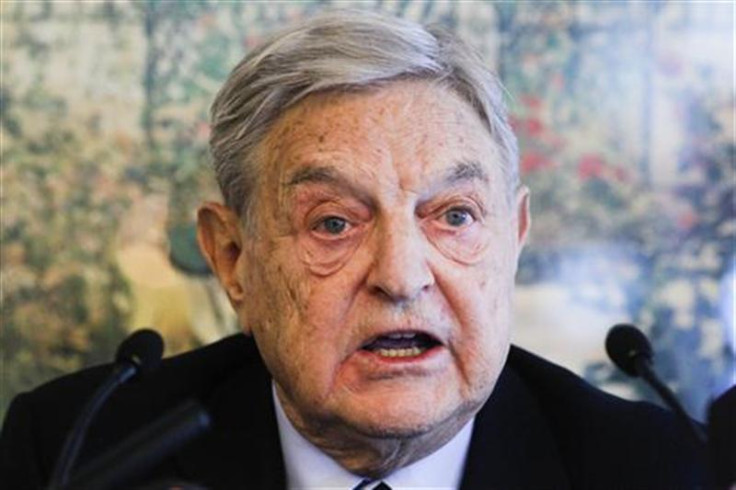George Soros Plans to Invest in Cash-Strapped European Banks

American billionaire investor George Soros said he is planning to invest in Europe's financial sector, which desperately needs capital at present after experiencing a moderate recovery from the financial crisis.
"I believe in the euro," Soros said in an interview with German weekly Der Spiegel.
"Therefore my investment team is looking forward to make a lot of money soon in Europe by, for example, pumping money in banks which urgently need capital."
This is the kind of private investment that the eurozone needs at present, the founder of Soros Fund Management added.
Soros is also looking for investments in debt-laden Greece.
"The economic conditions in the country have improved," the 83-year-old said. "Now it comes to the question of whether you can make money there permanently - If that is possible, we will invest."
Merkel's Austerity Policies
Soros, one of the closely watched figures in the hedge fund sector, also renewed his criticism of the Euro-bailout policy of Chancellor Angela Merkel.
He said the austerity policies embraced by Merkel and forced upon Europe are wrong and have exacerbated the crisis in the region unnecessarily.
He added that the problems in the eurozone's economy are calming down, but a sustainable recovery is still in question.
"I fear that the eurozone could experience a similarly long period of economic stagnation like Japan in the past 25 years," Soros said.
Talking about the hedge fund industry, he noted that high levels of debt in China that has grown much faster than economic output, raising concerns.
Soros added that China's leaders did not take enough care of the problem of the debt explosion, as they were only interested in the economic growth.
"The authorities must finally stimulate domestic demand", said Soros about China.
Hedge fund guru Soros has received global attention for his remarks on financial policy and investment strategies. He is known as "the Man Who Broke the Bank of England" because of the $1bn (£602m, €728m) in profits he made during the 1992 Black Wednesday UK currency crisis, when he bet successfully against the British pound.
His fortune is currently estimated at $20bn.
© Copyright IBTimes 2025. All rights reserved.






















